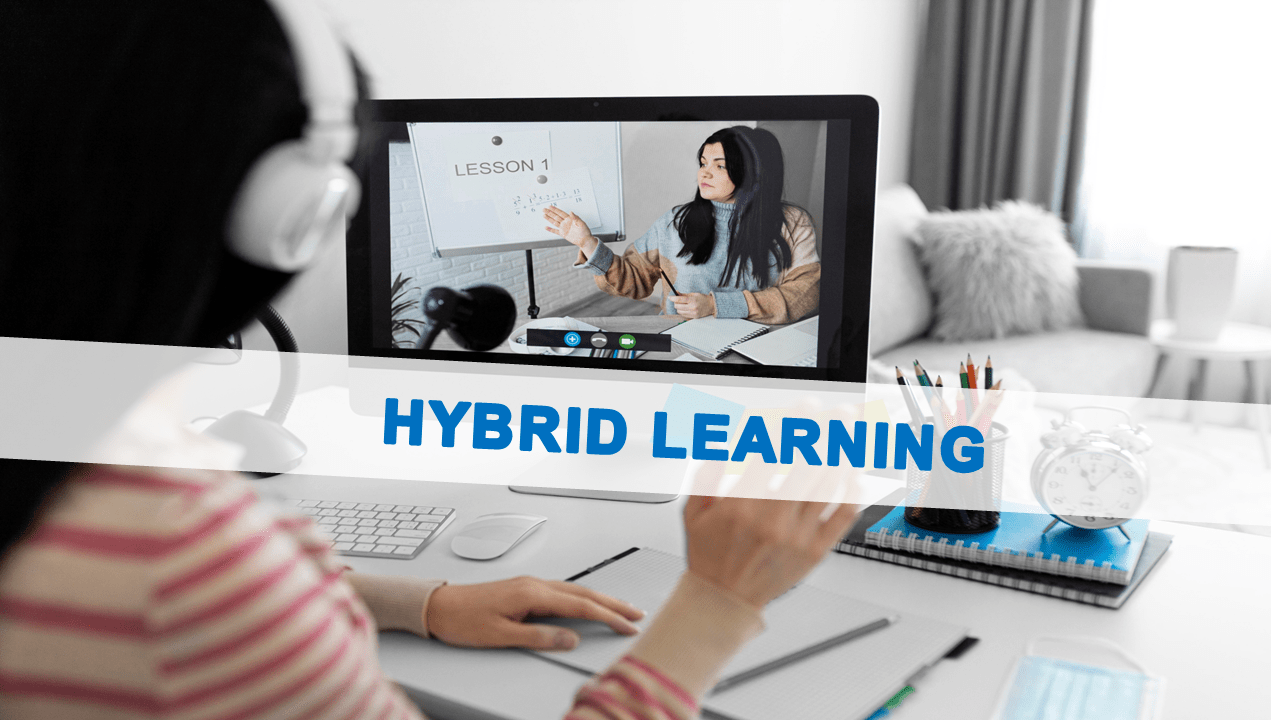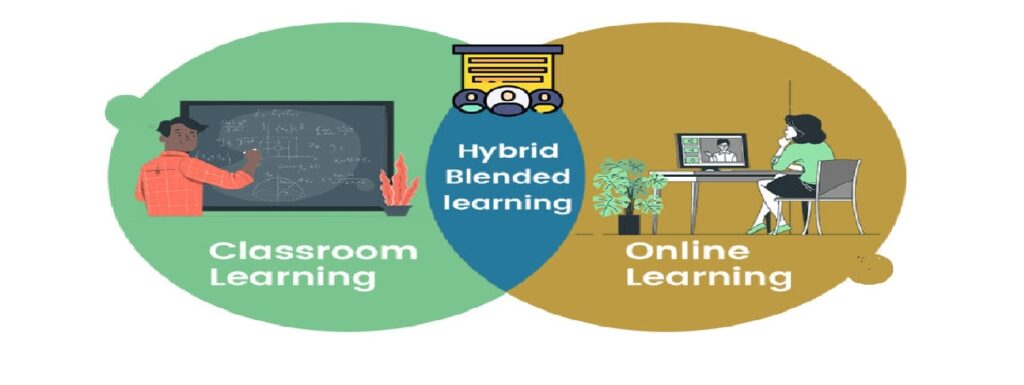Home » Adapting to Hybrid Learning Environments: Navigating the Future of Education in 2024

In the dynamic realm of education, the year 2024 marks a pivotal moment as institutions worldwide continue to adapt to hybrid learning environments. The fusion of traditional classroom instruction with digital tools and online platforms has ushered in a new era, reshaping the landscape of education and paving the way for innovative teaching methodologies. As we navigate the future of education, the concept of hybrid learning has emerged as a cornerstone, offering a flexible and dynamic approach that caters to the diverse needs of today’s students.
Hybrid Learning : Future of Education
Hybrid learning which combines in-person and online training, is a strategic answer to the demands of an increasingly digital environment. This educational paradigm recognizes the unique capabilities of both traditional and digital learning forms, with the goal of creating a synergistic environment that maximizes the benefits of each. Using technology, instructors may give students access to a multitude of resources, interactive content, and collaboration tools, resulting in a more engaging and personalized learning experience.

One of the most noticeable benefits of hybrid learning is its ability to accommodate a wide range of learning styles and preferences among students. Asynchronous online modules allow students to study at their own pace, examining materials and participating in conversations when it is most convenient for them. Simultaneously, in-person courses promote face-to-face contacts, allowing for greater engagement, instant feedback, and the development of a sense of community within the academic context.
Moreover, the integration of digital platforms into the learning process has opened up new possibilities for interactive and immersive experiences. Virtual classrooms, augmented reality, and simulation tools enhance the traditional learning environment, providing students with practical and real-world applications of their academic pursuits. This not only enriches the educational experience but also equips students with valuable skills necessary for the technologically driven future they will encounter beyond the classroom.
While the transition to hybrid learning has clearly created several benefits, it has also presented several obstacles. Educational institutions must address challenges such as equitable access to technology, the risk of increasing distractions in remote settings, and the need for strong support systems. Strategies for bridging the digital divide, implementing successful online pedagogies, and providing comprehensive student support services are critical to guaranteeing the success of hybrid learning programmes.
In conclusion
The journey towards adapting to hybrid learning environments in 2024 represents a transformative shift in education. It signifies a commitment to leveraging technology to enhance learning outcomes, foster adaptability, and prepare students for a future where digital literacy and remote collaboration are paramount. As we navigate this evolving landscape, educators and students alike are presented with an opportunity to actively shape the future of education, embracing the potential of hybrid learning to create a resilient, inclusive, and dynamic educational ecosystem.
Lingaya’s Vidyapeeth, a leading Top College in Faridabad, Delhi NCR, is at the forefront of education by implementing hybrid learning strategies. Committed to academic excellence, it seamlessly blends traditional and online approaches, ensuring students receive a comprehensive and adaptable education for success in the modern world.
From
Shivangi Priya
Research Assistant
School of Commerce & Management
January 24, 2024RECENT POSTS
CATEGORIES
TAGS
Agriculture Agriculture future AI Architecture artificial intelligence BA English BA Psychology BTech Engineering Business management career Career-Specific Education career guide Career Opportunities career option career scope Civil engineering commerce and management Computer Science Computer science engineering Data science degree education Engineering engineering college Engineering students English Literature english program Exam tips Fashion Design Fashion design course Higher Education Journalism journalism and mass communication law Law career Machine Learning MA Psychology Master degree mathematics MBA Mechanical Engineering Pharmacy Psychology Research and Development students
University Address: Nachauli, Jasana Road, Faridabad, Haryana
Toll Free: 1800-120-4613
Mobile : 8447744303 | 8447744304 | 8447744306 | 8447744309
Address: C-72, Second Floor, Shivalik, Near Malviya Nagar,
Above HDFC Bank, New Delhi 110017
Ph.No. - 011-46570515 / 45138169 / 41755703 / +91-7303152412
Jagmani Kutir, Ground Floor, Road No-1, Rajeev Nagar,
Near Darbar Marriage Hall, Patna-800024, Bihar
Contact No: 9818352069/8130120095
Mail: [email protected]
Copyrights © 1998 - 2025 Lingaya's Vidyapeeth (Deemed To Be University). All rights reserved.
It is important to note that the following email IDs and domains are fraudulent and do not belong to our university.
LV only conducts physical/online verification of any document related to examination on the following email id: